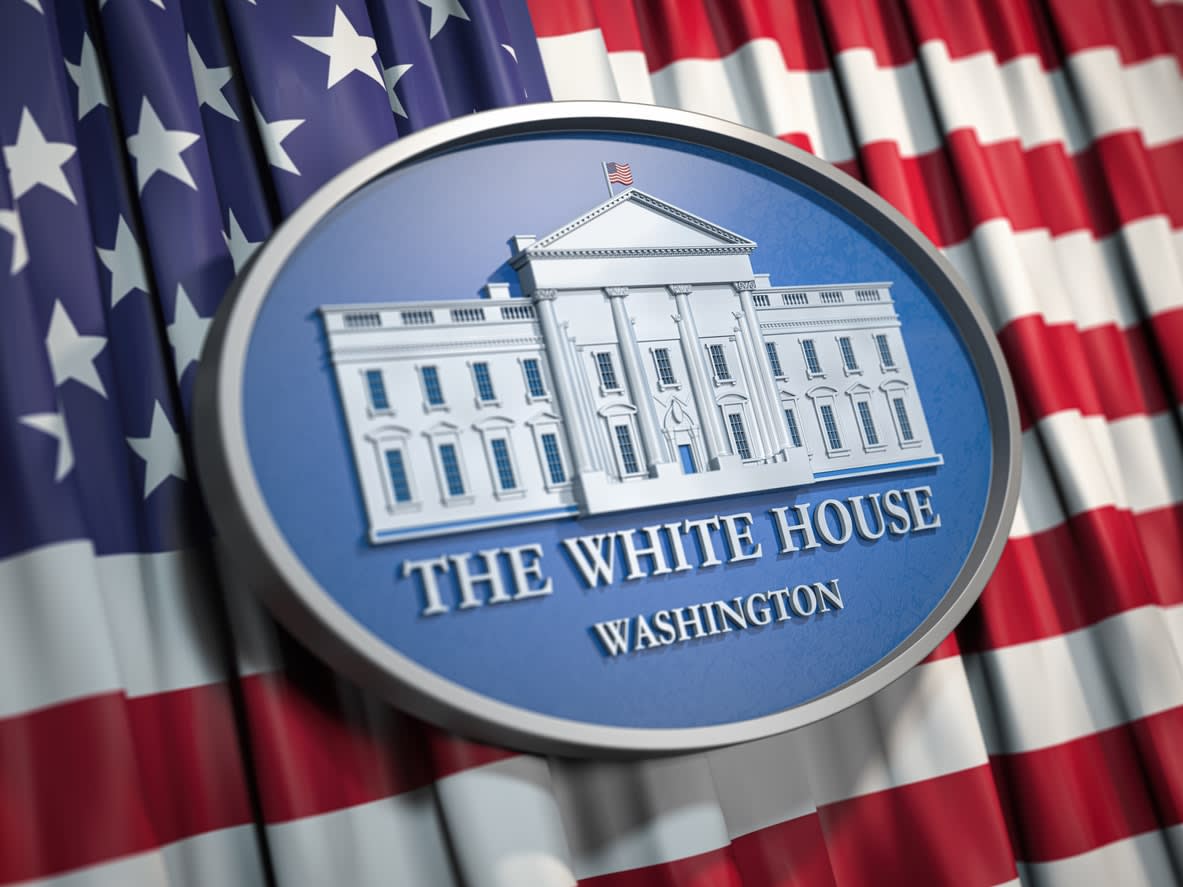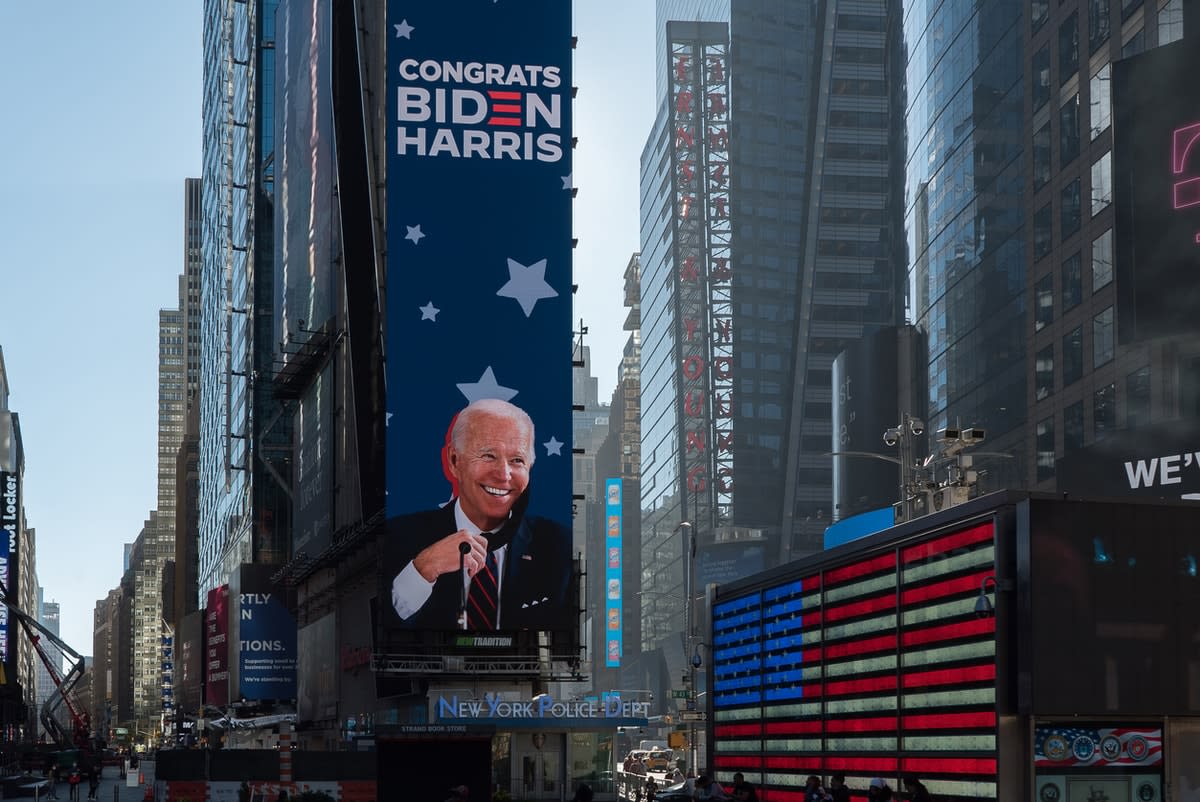A blank page. A clean slate. A breath of fresh air.
These are just a handful of phrases that can be used to describe the inauguration of President Joe Biden and Vice-President Kamala Harris, a day that finally put an end to the four-year long blur of constant controversies, tweetstorms, and breaking news headlines that was the Trump presidency.
Inauguration Day 2021 came in the wake of a tumultuous post-election transition period that was marred by one devastating headline after another, culminating in the shocking insurrection at the Capitol, the second impeachment of Donald Trump, and the loss of more than 400,000 American lives to the COVID-19 pandemic.
So, with a barely three-week-old 2021 bringing so much darkness to an already broken nation struggling to heal itself after one of the most divisive elections in its history, this inauguration was a chance to hit pause - and perhaps even refresh - on what has been a relentless political news cycle since the name Trump first became a part of it in 2015.

An inauguration like no other
Inauguration Day is usually a proud display of pomp and circumstance, brimming with packed crowds, extravagant parades, and glitzy inauguration balls. But the combined effects of the pandemic and the insurrection turned Washington DC into a silent and empty state of military lockdown. Fences, face masks and flags replaced the spaces that should have held crowds of thousands. Yes, the same kind of crowd that came to define President Donald Trump's inauguration four years ago.
While these unsettling images of Inauguration Day can be traced to now former President Donald Trump and the damaging role he played in both crises, it's perhaps of little surprise he chose to make the day even more unrecognisable by shattering a few more norms on his way out of Washington.
While it's customary for an outgoing president to participate in the peaceful transfer of power on Inauguration Day by inviting the president-elect to the White House and witness them being sworn in, Trump instead opted to leave office the way he came in - as the centre of attention in a rally attended by his loyal supporters and family members.
So, maybe it was too much to expect that Trump would change his ways in his final hours as president, but in what was supposed to be a day of celebration for the incoming president and the country as a whole, the simple gracious gesture of attending Biden's inauguration could have done wonders for his damaged brand and popularity.
Making history
From Trump being the first president in 152 years to refuse to participate in his successor's inauguration, to Vice-President Harris being the first woman to be sworn in to one of the nation's two highest offices, this was a day for the history books.
Vice-President Harris, the first woman - as well as the first African-American and South Asian woman - to serve in the role, was sworn in by Justice Sonia Sotomayor, the first Hispanic and Latina woman to be appointed to the Supreme Court. This was a powerful image that's been decades in the making, and hopefully one that will be replicated many times in the future.
Recalling Trump's infamous inaugural speech in 2017, two words come to mind: "American carnage." It was a dark and foreboding speech that made no attempt to heal a bitterly divided nation, and it set the tone for the four chaotic years that followed.
President Biden, for his part, also contributed to the historic nature of the day. Serving as the vice-president to the first African-American president, Barack Obama, and ushering in the first woman of colour, Kamala Harris, to serve in that position in his administration, he now sets a tone of inclusion and tolerance that's been missing in American politics in recent years.
While it's important these positive themes are not just for show but are also represented in his policy actions, it's certainly a promising start for a president and an administration built on the foundational principles of unity, healing, and hope.

A message of solemn hope
Recalling Trump's infamous inaugural speech in 2017, two words come to mind: "American carnage." It was a dark and foreboding speech that made no attempt to heal a bitterly divided nation, and it set the tone for the four chaotic years that followed.
Fast-forward to President Biden's inaugural speech, and the comparison is black and white. The contrast is not just in tone, but also in the prominent themes, with Trump drawing on darkness and fear, and Biden focusing on light and hope.
Throw a bipartisan audience, and inspirational musical and poetic performances into the mix, and Biden's inaugural speech, along with its message of unity and healing, will be remembered for years to come, for the right reasons.
But now that a memorable Inauguration Day has come and gone, it's time to look to the future, and the many challenges that will try their best to poke holes in President Biden's positive outlook: a COVID-19 pandemic that's claiming thousands of lives each day, and a vaccine rollout struggling to find its footing; a precariously balanced Congress facing a second impeachment trial in just over a year; an economy that poses an even greater challenge to President Biden and his administration than the financial crisis he was confronted with when he entered office with Obama 12 years ago.
It's a trifecta of challenges that could confound any incoming president. If there's any hope of overcoming them, it now rests with President Joe Biden and his message of solemn hope.
Featuring
-
Meghna Srinivas
PhD candidate, School of Social Sciences, Faculty of Arts
Meghna is undertaking a PhD in international relations in the School of Social Sciences at Monash. Her research focuses on presidential leadership in the United States, with an emphasis on the Trump presidency. As the United States Fellow for Young Australians in International Affairs, Meghna has previously written on a range of topics relating to US politics. She holds a Bachelor of Arts with a double major in international relations and communications, and a Master of International Relations with a specialisation in governance and security, both from Monash.






